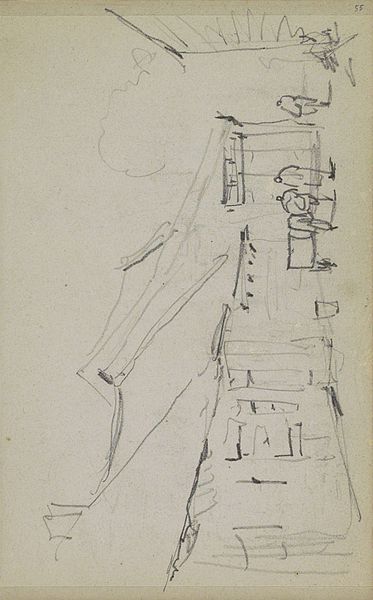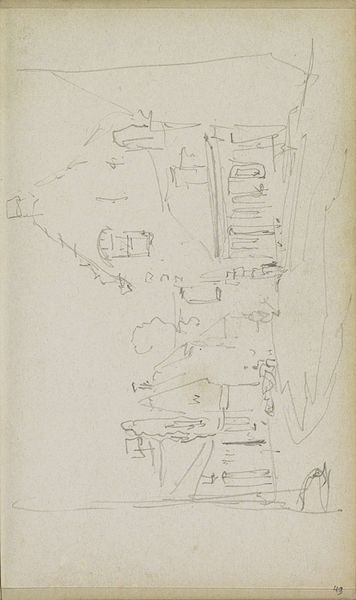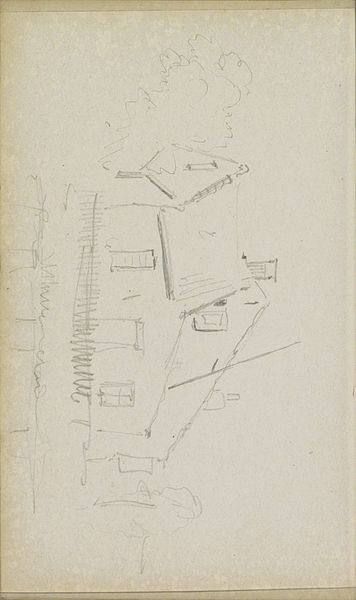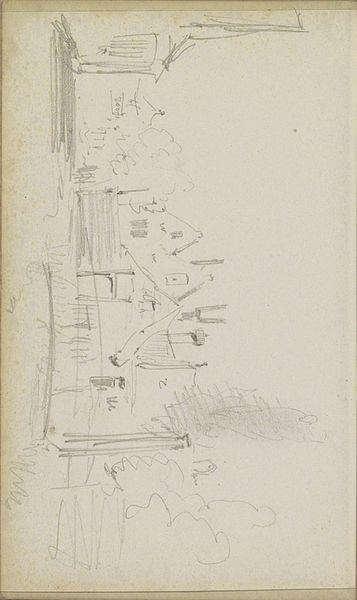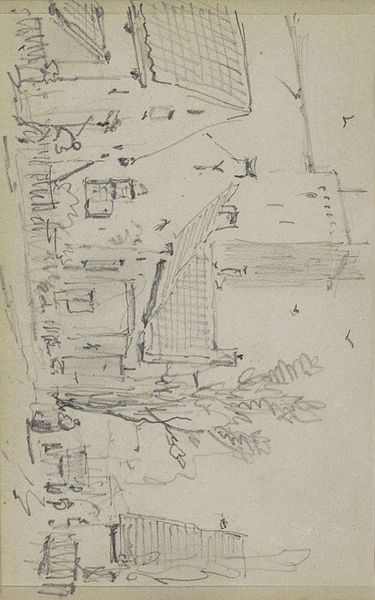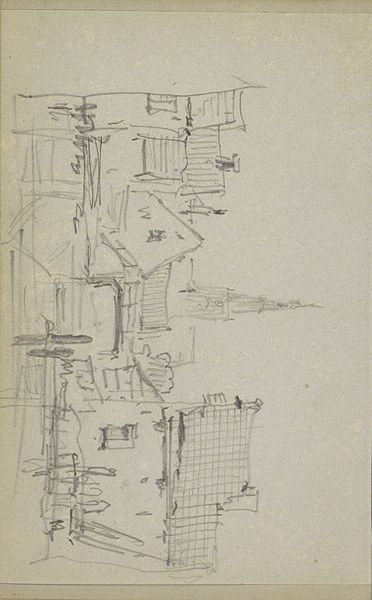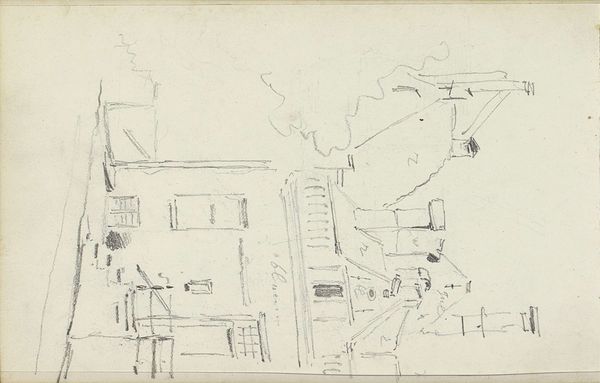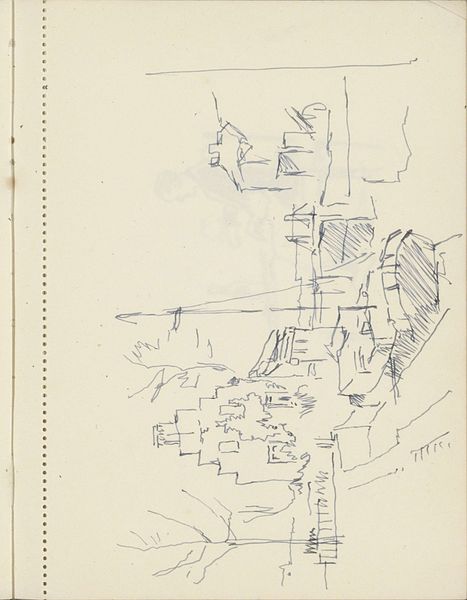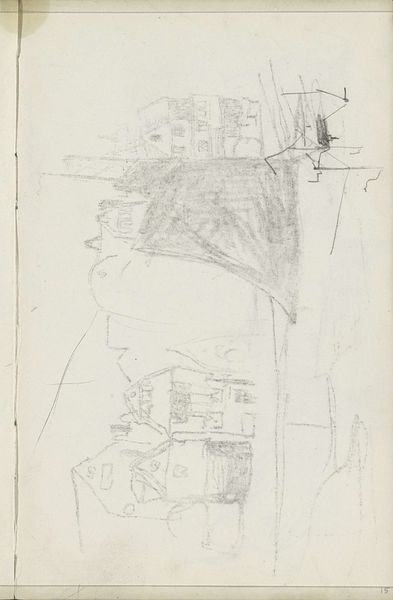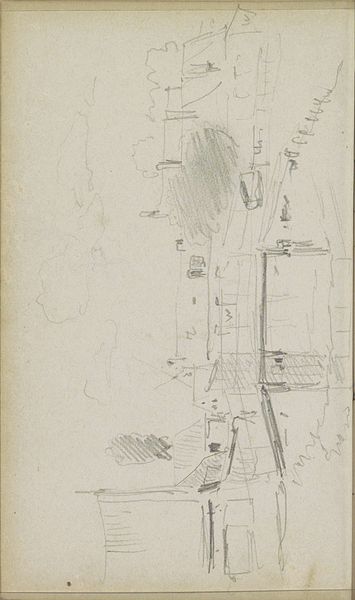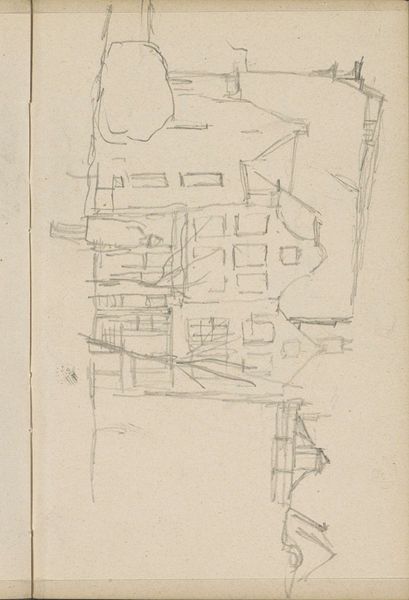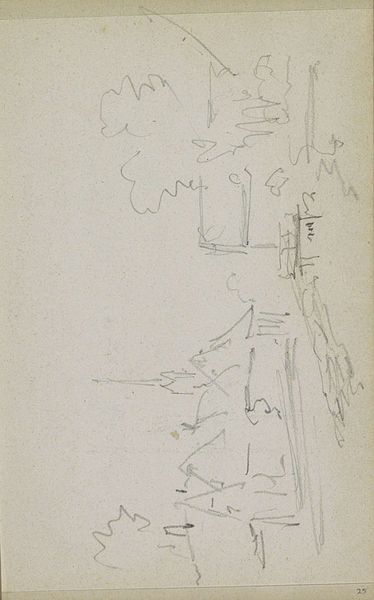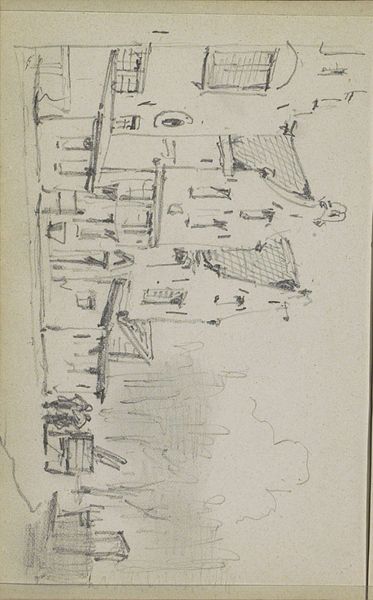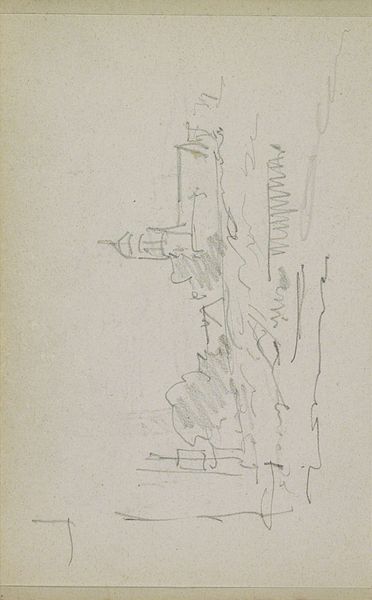
drawing, pencil
#
drawing
#
dutch-golden-age
#
sketch book
#
landscape
#
personal sketchbook
#
idea generation sketch
#
sketchwork
#
ink drawing experimentation
#
pen-ink sketch
#
pencil
#
sketchbook drawing
#
cityscape
#
storyboard and sketchbook work
#
sketchbook art
#
realism
#
initial sketch
Copyright: Rijks Museum: Open Domain
Editor: Here we have Adrianus Eversen's "View of Oudewater with the St. Michael's Church," a pencil drawing from around 1828-1897. The sketch feels very immediate, almost like a fleeting impression of the town. How do you interpret this work? Curator: I see a deliberate act of witnessing. Sketches like this were integral to 19th-century landscape artists, weren’t they? They become documents of a specific moment in time, capturing the spatial relationships between structures and nature. It reminds us of the rapidly changing urban landscapes of that era and begs us to consider what exactly was being "conserved" in such representations? Were these landscapes available to all? Editor: So, it's not just a simple landscape; it reflects societal shifts too? Curator: Absolutely! Eversen’s choice of Oudewater, a town with its own distinct history, signals a consciousness of place. Think about the socio-economic power dynamics at play in how land is represented and who controls its narrative. How does Eversen's focus shape our understanding or perhaps misunderstandings of that space? Does his rendering democratize the experience of the area? Editor: That's a perspective I hadn't considered. I was mostly caught up in the aesthetic simplicity. Curator: And the aesthetic has its role. The sketch-like quality can challenge the grand narratives often associated with landscape painting. It makes us think of the conditions for the common person during that time. Who inhabits these sketched streets and buildings in your imagination? Editor: I guess I assumed a quaint, picturesque view. But framing it through the lens of social dynamics changes everything. Curator: Precisely! Art doesn't exist in a vacuum; it mirrors and refracts the complexities of the world around it. We must acknowledge those reflections. Editor: I'll definitely approach landscape art differently from now on. Thanks for making me see it more politically. Curator: And thank you for staying curious and questioning dominant readings. That's the key to unlocking richer understandings of art's place in our world.
Comments
No comments
Be the first to comment and join the conversation on the ultimate creative platform.
